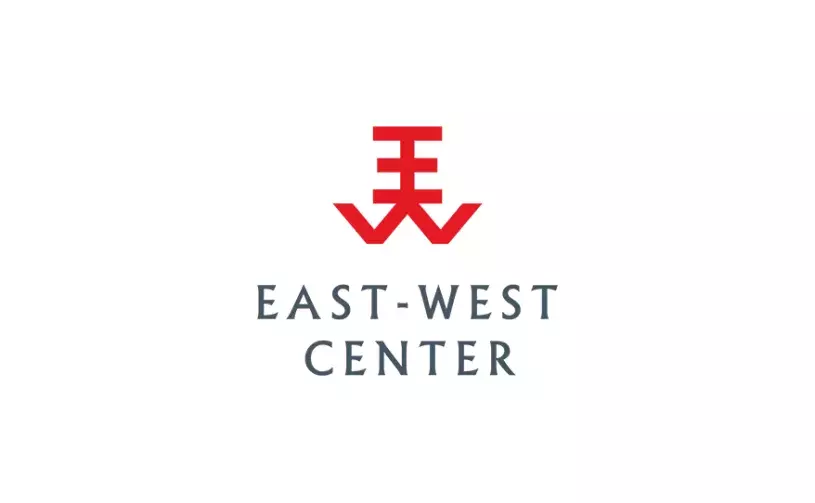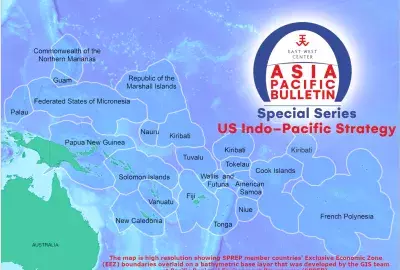Error message

|
Tommy K. S. Koh, former Summer Affiliate Scholar at the East-West Center, explains that “Written as an opposition manifesto, Buku Harapan’s desire for greater parliamentary engagement reflected what Pakatan Harapan desired from an expected ruling Barisan Nasional government.” |
As Malaysia’s new Pakatan Harapan (translating as “Book of Hope”) Government completes its first five months in office, its challenge has shifted from winning elections to governing the nation. Prior to May 9th, few would have expected that Pakatan Harapan’s manifesto – Buku Harapan or Book of Hope – would guide a new chapter in Malaysian politics. It is likely that its own crafters perceived electoral victory as more a distant hope rather than an assured reality. Yet with the defeat of the long-ruling Barisan Nasional (BN) coalition, Buku Harapan has become central to Malaysia’s new direction and priorities, continues to influence Malaysia’s governance, and can possibly alter power sharing arrangements in Malaysian politics.
If Buku Harapan is to be read literally, Pakatan Harapan fell short in its first 100 days. The manifesto made 10 promises for the government to fulfil, including clear policy directives such as “abolish the GST and take steps to reduce cost of living” and more ambitious targets with vague measures such as “equalise the minimum wage nationally and start the processes to increase the minimum wage.” Now that the 100-day mark has passed, there is widespread agreement that Pakatan Harapan has not fulfilled all 10 promises, even though it has made progress on some of them.
Some argue that this failure was a given because Buku Harapan was merely a populist manifesto to get Pakatan Harapan elected. While the manifesto can certainly be read as populist, treating it as something only intended for electoral victory overlooks the significant impact of Buku Harapan on post-election governance. This includes reversing the decision by Prime Minister Mahathir to take on his preferred Education portfolio, due in part to Buku Harapan’s Promise 12 which states that “the Prime Minister will not simultaneously hold other ministerial posts, especially the post of Minister of Finance”. In the first five months of rule, the words of Buku Harapan have already influenced the governing decisions of the Pakatan Harapan cabinet.
The more important insight is that Buku Harapan has transitioned from being an election manifesto to acting as the cornerstone of a new system of governance. While the new Government could discard Buku Harapan’s promises and pursue a separate agenda using methods like the past Government, it does not seem to be pursuing this path. Instead, the Government appears to be making efforts to systematize and institutionalize Buku Harapan’s promises. Although the results of these efforts remain to be seen, these early indications suggest that Malaysia is in a moment of political change rather than one of political continuity.
Promises in Buku Harapan about power sharing are especially interesting. In the English translation of Buku Harapan, the term “opposition” is used three times, all within Promise 16 which seeks to “restore the dignity of the Parliament.” It states that the Leader of Opposition “will be granted the status and provisions equivalent to a Federal Minister,” that the Chairman of the Public Accounts Committee “will be reserved for an opposition member of parliament,” and that in both Dewan Rakyat and Dewan Negara (the lower and upper houses of parliament) “specific time will be allocated for Opposition party agenda.” If implemented, these promises represent a significant departure from the tendency of ruling parties to consolidate power and stifle the opposition.
Pakatan Harapan’s unexpected win is a likely explanation for Buku Harapan’s provisions for power sharing. Written as an opposition manifesto, Buku Harapan’s desire for greater parliamentary engagement reflected what Pakatan Harapan desired from an expected ruling Barisan Nasional government. Prime Minister Mahathir spoke of this recently, with Malaysiakini reporting him as saying: “actually we did not expect to win, we made a thick manifesto with all kinds of promises…we must fulfil our promises which is why we can’t make promises that we cannot fulfil” and that “we need to make sacrifices to fulfil our promises. If we can’t fulfil them, we will need a good reason that is acceptable to the people.” In the aftermath of Pakatan Harapan’s unexpected victory, Buku Harapan is a lasting reminder of Pakatan Harapan’s founding promises and ensures that these promises do not fade with electoral victory.
Apart from these early commitments to Buku Harapan’s promises, other factors contribute to a strong likelihood of Buku Harapan’s continued use as a roadmap for governance. The need to appear trustworthy will remain an imperative for the new government if it is to secure long-term political legitimacy. However, regardless of whether or not Pakatan Harapan is confident in its continued rule, increased power sharing is a likely outcome. In the former scenario, a confident Pakatan Harapan that does not perceive Barisan Nasional as a threat would be willing to grant the opposition party limited power to reinforce its own legitimacy. In the latter scenario, an unconfident Pakatan Harapan might be well served to institutionalize power sharing to grant itself a more level playing field should it return to being in the opposition.
Another factor for Buku Harapan’s continued influence lies in the fact that the Pakatan Harapan coalition does not currently have another roadmap with which to govern. Even though members such as Mahathir, Anwar Ibrahim, and Muhyiddin Yassin have previous governing experience, the coalition itself is relatively young and has no internal precedents for running the country. Moreover, the coalition likely faces internal pressures because of differing interests within and between its component parties. Since negotiating a mutually acceptable new roadmap will prove challenging, the coalition is likely to return to the Buku Harapan which was agreed upon in the past when victory was uncertain and coalition unity was prioritized over individual party interests.
Ultimately Buku Harapan was written in response to lapses in governance by the previous Barisan Nasional government by an opposition that did not expect to win. Its underlying principles capture an aspiration of greater power sharing, and substantive and procedural promises to achieve that goal. Even though some in the new government describe the process of fulfilling every promise as difficult, the existence of Buku Harapan has anchored Pakatan Harapan to its promised reforms.
Opinion polls suggest that the confidence of the Malaysian people in their new Government remains high. Insofar as increased power sharing is seen as a marker of improved governance, Buku Harapan’s continued role in influencing Malaysia’s new government suggest that there is indeed good reason to be confident.
|
Tommy K. S. Koh, former Summer Affiliate Scholar at the East-West Center, explains that “Written as an opposition manifesto, Buku Harapan’s desire for greater parliamentary engagement reflected what Pakatan Harapan desired from an expected ruling Barisan Nasional government.” |
As Malaysia’s new Pakatan Harapan (translating as “Book of Hope”) Government completes its first five months in office, its challenge has shifted from winning elections to governing the nation. Prior to May 9th, few would have expected that Pakatan Harapan’s manifesto – Buku Harapan or Book of Hope – would guide a new chapter in Malaysian politics. It is likely that its own crafters perceived electoral victory as more a distant hope rather than an assured reality. Yet with the defeat of the long-ruling Barisan Nasional (BN) coalition, Buku Harapan has become central to Malaysia’s new direction and priorities, continues to influence Malaysia’s governance, and can possibly alter power sharing arrangements in Malaysian politics.
If Buku Harapan is to be read literally, Pakatan Harapan fell short in its first 100 days. The manifesto made 10 promises for the government to fulfil, including clear policy directives such as “abolish the GST and take steps to reduce cost of living” and more ambitious targets with vague measures such as “equalise the minimum wage nationally and start the processes to increase the minimum wage.” Now that the 100-day mark has passed, there is widespread agreement that Pakatan Harapan has not fulfilled all 10 promises, even though it has made progress on some of them.
Some argue that this failure was a given because Buku Harapan was merely a populist manifesto to get Pakatan Harapan elected. While the manifesto can certainly be read as populist, treating it as something only intended for electoral victory overlooks the significant impact of Buku Harapan on post-election governance. This includes reversing the decision by Prime Minister Mahathir to take on his preferred Education portfolio, due in part to Buku Harapan’s Promise 12 which states that “the Prime Minister will not simultaneously hold other ministerial posts, especially the post of Minister of Finance”. In the first five months of rule, the words of Buku Harapan have already influenced the governing decisions of the Pakatan Harapan cabinet.
The more important insight is that Buku Harapan has transitioned from being an election manifesto to acting as the cornerstone of a new system of governance. While the new Government could discard Buku Harapan’s promises and pursue a separate agenda using methods like the past Government, it does not seem to be pursuing this path. Instead, the Government appears to be making efforts to systematize and institutionalize Buku Harapan’s promises. Although the results of these efforts remain to be seen, these early indications suggest that Malaysia is in a moment of political change rather than one of political continuity.
Promises in Buku Harapan about power sharing are especially interesting. In the English translation of Buku Harapan, the term “opposition” is used three times, all within Promise 16 which seeks to “restore the dignity of the Parliament.” It states that the Leader of Opposition “will be granted the status and provisions equivalent to a Federal Minister,” that the Chairman of the Public Accounts Committee “will be reserved for an opposition member of parliament,” and that in both Dewan Rakyat and Dewan Negara (the lower and upper houses of parliament) “specific time will be allocated for Opposition party agenda.” If implemented, these promises represent a significant departure from the tendency of ruling parties to consolidate power and stifle the opposition.
Pakatan Harapan’s unexpected win is a likely explanation for Buku Harapan’s provisions for power sharing. Written as an opposition manifesto, Buku Harapan’s desire for greater parliamentary engagement reflected what Pakatan Harapan desired from an expected ruling Barisan Nasional government. Prime Minister Mahathir spoke of this recently, with Malaysiakini reporting him as saying: “actually we did not expect to win, we made a thick manifesto with all kinds of promises…we must fulfil our promises which is why we can’t make promises that we cannot fulfil” and that “we need to make sacrifices to fulfil our promises. If we can’t fulfil them, we will need a good reason that is acceptable to the people.” In the aftermath of Pakatan Harapan’s unexpected victory, Buku Harapan is a lasting reminder of Pakatan Harapan’s founding promises and ensures that these promises do not fade with electoral victory.
Apart from these early commitments to Buku Harapan’s promises, other factors contribute to a strong likelihood of Buku Harapan’s continued use as a roadmap for governance. The need to appear trustworthy will remain an imperative for the new government if it is to secure long-term political legitimacy. However, regardless of whether or not Pakatan Harapan is confident in its continued rule, increased power sharing is a likely outcome. In the former scenario, a confident Pakatan Harapan that does not perceive Barisan Nasional as a threat would be willing to grant the opposition party limited power to reinforce its own legitimacy. In the latter scenario, an unconfident Pakatan Harapan might be well served to institutionalize power sharing to grant itself a more level playing field should it return to being in the opposition.
Another factor for Buku Harapan’s continued influence lies in the fact that the Pakatan Harapan coalition does not currently have another roadmap with which to govern. Even though members such as Mahathir, Anwar Ibrahim, and Muhyiddin Yassin have previous governing experience, the coalition itself is relatively young and has no internal precedents for running the country. Moreover, the coalition likely faces internal pressures because of differing interests within and between its component parties. Since negotiating a mutually acceptable new roadmap will prove challenging, the coalition is likely to return to the Buku Harapan which was agreed upon in the past when victory was uncertain and coalition unity was prioritized over individual party interests.
Ultimately Buku Harapan was written in response to lapses in governance by the previous Barisan Nasional government by an opposition that did not expect to win. Its underlying principles capture an aspiration of greater power sharing, and substantive and procedural promises to achieve that goal. Even though some in the new government describe the process of fulfilling every promise as difficult, the existence of Buku Harapan has anchored Pakatan Harapan to its promised reforms.
Opinion polls suggest that the confidence of the Malaysian people in their new Government remains high. Insofar as increased power sharing is seen as a marker of improved governance, Buku Harapan’s continued role in influencing Malaysia’s new government suggest that there is indeed good reason to be confident.







